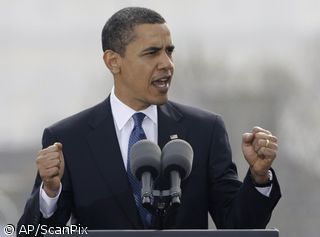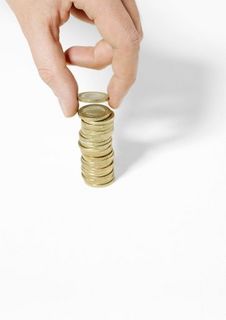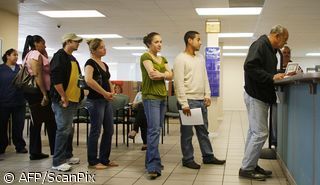Sweden Thrives on Exports One Year After Voters Reject the Euro
Published:
16 September 2004 y., Thursday
A year after Swedish Prime Minister Goeran Persson told voters his country needed the euro to compete in world markets, the Swedish economy has done a good job of proving him wrong.
The National Institute of Economic Research in Stockholm last month raised its economic growth forecast to 3.5 percent this year and 3 percent in 2005. A global expansion has boosted demand for Swedish exports while worker productivity has increased faster than in the 12 countries sharing the euro, which 56 percent of Swedish voters rejected on Sept. 14, 2003.
Swedish and international companies are betting on Sweden. Last month, for example, Atlet AB said it would close its forklift plant in Oberhausen, Germany, and move about 30 jobs to its factory in Moelnlycke, Sweden. Second-quarter foreign direct investment in Sweden jumped to a net 19.9 billion kronor ($2.7 billion), after a year-earlier outflow of 31.4 billion kronor.
The European Central Bank expects the economy of the euro region to expand about 1.9 percent this year and 2.3 percent in 2005. By one study, Sweden ranks second in the world in productivity.
Sweden, a nation of 9 million people that joined the European Union in 1994, accounts for 2 percent of the bloc's population and 2.7 percent of economic production. Its economy has grown faster than that of the euro region for eight of the past 10 years.
Šaltinis:
Bloomberg
Copying, publishing, announcing any information from the News.lt portal without written permission of News.lt editorial office is prohibited.
The most popular articles
 On August 4, the first chartered flight of "The Japan Airlines" will arrive from Tokyo in the Baltic States and land in Riga.
more »
On August 4, the first chartered flight of "The Japan Airlines" will arrive from Tokyo in the Baltic States and land in Riga.
more »
 1.6 billion rouble loan to overcome problems holding up expansion of city of Surgut
more »
1.6 billion rouble loan to overcome problems holding up expansion of city of Surgut
more »
 Nordic Shared Services & Outsourcing Forum 2009, 26 – 27 August, Sweden
more »
Nordic Shared Services & Outsourcing Forum 2009, 26 – 27 August, Sweden
more »
 Results of the latest price survey by Eurostat show that Lithuania is on the list of the TOP 10 least expensive countries in Europe.
more »
Results of the latest price survey by Eurostat show that Lithuania is on the list of the TOP 10 least expensive countries in Europe.
more »
 The European Commission's Digital Competitiveness report published today shows that Europe's digital sector has made strong progress since 2005.
more »
The European Commission's Digital Competitiveness report published today shows that Europe's digital sector has made strong progress since 2005.
more »
 US President Barack Obama said that the economy was weaker than he thought when he took office, but there are signs of improvement.
more »
US President Barack Obama said that the economy was weaker than he thought when he took office, but there are signs of improvement.
more »
 The EIB and UniCredit Group strengthen their cooperation to implement the Joint Action Plan of the largest multilateral lenders in Central and Eastern Europe who have committed to provide up to EUR 24.5 bn lending to the SME sector hit by the global economic crisis.
more »
The EIB and UniCredit Group strengthen their cooperation to implement the Joint Action Plan of the largest multilateral lenders in Central and Eastern Europe who have committed to provide up to EUR 24.5 bn lending to the SME sector hit by the global economic crisis.
more »
 Within the first half of 2009, AB Bank SNORAS earned LTL 24 million of unaudited profit.
more »
Within the first half of 2009, AB Bank SNORAS earned LTL 24 million of unaudited profit.
more »
 10,000 workers were helped by the European Globalisation Adjustment Fund (EGF) last year and of these, more than two-thirds found a new job, according to a report adopted by the European Commission today.
more »
10,000 workers were helped by the European Globalisation Adjustment Fund (EGF) last year and of these, more than two-thirds found a new job, according to a report adopted by the European Commission today.
more »
 SEB recently won awards for best consumer Internet banks in Lithuania and Latvia in a ranking presented by Global Finance Magazine.
more »
SEB recently won awards for best consumer Internet banks in Lithuania and Latvia in a ranking presented by Global Finance Magazine.
more »